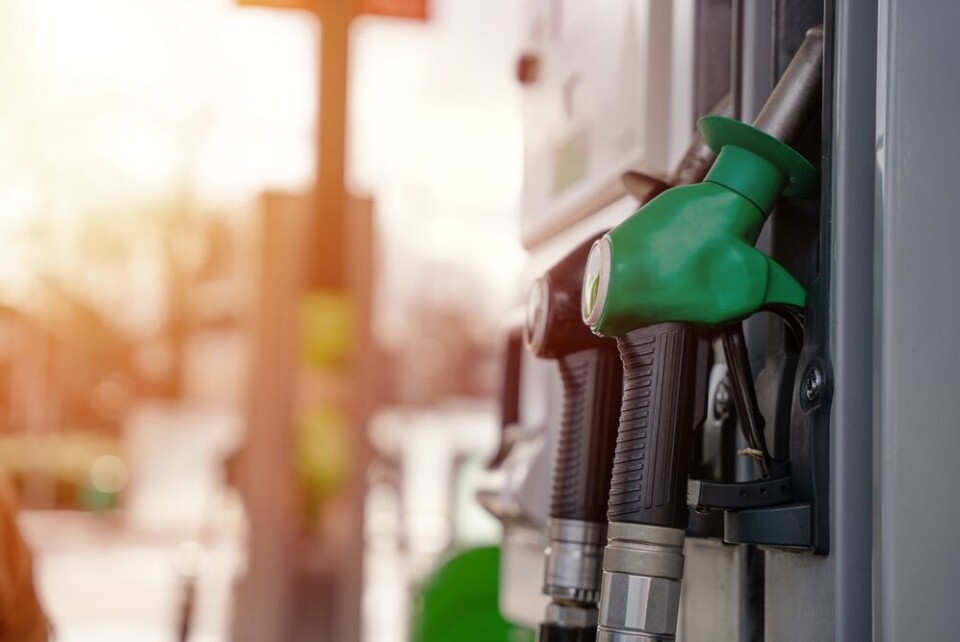-
Many Société Générale customers to be charged additional fees from April
There is some good news for international banking and instant transfers, however
-
Why gas prices in France are rising in April - and by how much
It comes after six consecutive monthly rises. Try these tips to reduce your bills
-
New notaire data suggests easing of Paris property crisis
Property experts have talked of ‘easing pressure’ and ‘breathing space’ after a four-year slump
Depot blockades and fuel shortages in Brittany - latest info
Workers angry over return of diesel tax are preventing shipments leaving fuel depots

[Update February 14: Blockades were lifted on Tuesday (February) evening, after the government reinstated the tax exemption for public works companies.]
A blockade of fuel depots in Brittany is leading to a shortage of fuel at some service stations in the region.
A number of public works companies and their respective unions are involved in the strike, which is over the controversial end of the tax exemption on gazole non routier (non-road diesel, or GNR), used by some of their vehicles.
Whilst farmers – who were also set to begin paying taxes on the fuel – won back their exemption during the recent protests, public works companies are still fighting for it.
As of now, the blockades are limited to Brittany, but there are fears that the movement could spread across France, with workers angry over the levying of the tax.
TotalEnergies released a statement saying there were “no supply problems” in Brittany and that stocks were not running low.
However, long queues at certain petrol stations in the region are becoming more common, with people preemptively stocking up over fears of a shortage, which in turn is leading to a lack of petrol in some stations.
The prefecture of the Finistère department said earlier today (February 13) that one in five petrol stations in the department were lacking in fuel.
However, they said there was not a shortage, and that "supply to service stations is guaranteed for the time being," with "alternative solutions" including importing fuel from other depots outside of the department being possible.
Blockades will last ‘until unions get their way’
The first action began on January 25, when lorries and other HGVs blocked the entrance to a major fuel depot in Lorient.
Other public works companies – mostly SMEs – soon joined, placing their vehicles in front of entrances in other depots across the region.
Some farmers stayed after their own protests to support the workers, using their tractors to block depot entrances even after their protests ended.
“Originally, we'd come to support the farming community, but in the end the farmers stayed to support us – the roles are reversed,” said Norbert Guillou, president of the local CNATP union, which supports public works companies.
Many other companies associated with the CNATP, and bâtiment et des travaux publics (BTP) have subsequently joined protests.
“We'll stay here until we get our way,” said Mr Guillou.
Anger over GNR fuel costs
Those blocking the depots want one thing – a return of GNR fuel tax exemptions.
The exemption on GNR ended on January 1, 2024, for these workers and farmers alike, with the government aiming to gradually increase taxes on the fuel until 2030, when they would fall in line with taxes on standard diesel products for commercial vehicles.
Incensed, farmers demanded a return to the exemption – amongst other things – which was granted by the government.
Read more: What is France's EGalim law and why does it matter to farmers?
However, it has yet to be re-extended to public works companies, who now fear farmers will have an advantage and could take over work in the sector.
“We can't do the same job without having the same fuel prices,” said Mr Guillou, who added some farmers already take on public works contracts.
If the tax exemption is not returned to public works companies, by 2030 they will be paying 57c more per litre of fuel than farmers on GNR, which they say will cripple their businesses.
Media outlet France3 has an interactive map showing the state of petrol stations in the region, including a breakdown of which fuel they are running short of.
Related articles
Will farmer roadblocks return? French union angered by lack of action
























